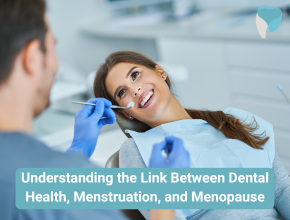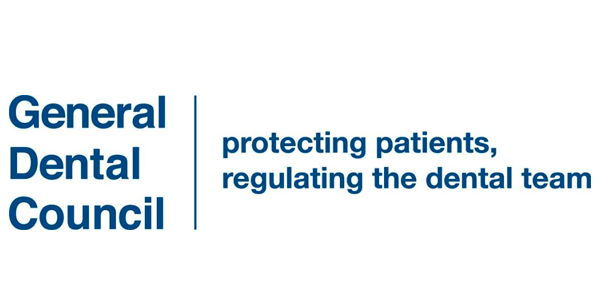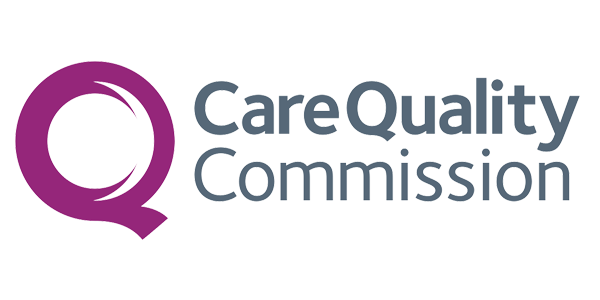The relationship between dental health and hormonal changes during menstruation and menopause is both profound and underappreciated. For women, hormonal fluctuations significantly impact oral health, influencing conditions like gum disease, oral dryness, and sensitivity. Understanding this connection empowers women to adopt preventive measures, improving both dental and overall health.
How Hormones Influence Dental Health
Hormonal changes during the menstrual cycle and menopause impact various aspects of health, including dental well-being. Hormones like estrogen and progesterone fluctuate throughout a woman’s life, influencing blood flow, immune response, and even the composition of saliva, all of which affect oral health.
When hormones rise or fall, they can alter gum sensitivity, increase plaque formation, and change the mouth’s pH balance. For example:
- Increased plaque buildup: Progesterone can increase plaque retention, leading to gum inflammation.
- Lower immune response: Hormonal shifts can affect immune strength, reducing the mouth’s natural defences.
Dental Health and Menstrual Cycle Phases
The menstrual cycle consists of four phases—menstrual, follicular, ovulation, and luteal—that each trigger distinct hormonal changes. Here’s how they affect oral health:
- Menstrual Phase (Days 1-5): As hormone levels are at their lowest, many women experience heightened sensitivity in the gums. Bleeding gums and mouth sores can be more common during this time.
- Follicular Phase (Days 6-14): Estrogen levels start to rise, promoting cell repair and strengthening blood vessels. During this time, gum health may improve slightly, though sensitivity can still be present.
- Ovulation (Around Day 14): Estrogen peaks around ovulation, which can sometimes result in puffy or inflamed gums. Increased blood flow can heighten gum sensitivity and may lead to discomfort while brushing or flossing.
- Luteal Phase (Days 15-28): Progesterone levels surge in preparation for potential pregnancy. Progesterone can increase blood flow to the gums, often causing swelling, redness, and even tenderness. This increase in progesterone can also make the gums more susceptible to bacteria and plaque, raising the risk of gingivitis.
Symptoms to Watch For:
- Swollen, bleeding, or tender gums
- Increased plaque buildup and tooth sensitivity
- Canker sores or other oral irritations
Oral Health Concerns During Menopause
Menopause is a significant life stage with lasting effects on oral health. The drop in estrogen levels that occurs during menopause can lead to several oral health issues, including dry mouth, bone density loss, and gum disease.
Key Oral Health Concerns in Menopause:
- Dry Mouth (Xerostomia): Estrogen helps maintain saliva flow, which is essential for washing away bacteria and food particles. With reduced estrogen levels, many women experience dry mouth, making them more prone to cavities and gum disease.
- Bone Density Loss and Tooth Loss: Estrogen decline can also impact bone density. Since the jawbone supports teeth, decreased bone density can increase the risk of tooth loss or mobility, particularly if periodontal disease is present.
- Gum Disease and Periodontitis: Lower estrogen can make gum tissues more susceptible to inflammation and infection. Post-menopausal women are often at higher risk of periodontitis, an advanced form of gum disease that can lead to bone loss if untreated.
Additional Symptoms:
- Burning sensation in the mouth, known as “burning mouth syndrome”
- Altered taste and sensitivity to hot or cold foods
- Recurrent oral infections or ulcers
Managing Oral Health: Tips for Different Life Stages
Oral hygiene practices play a crucial role in managing dental health throughout hormonal changes. Here are some tailored tips for women to support oral health during menstruation and menopause:
Tips During the Menstrual Cycle:
- Practice Gentle Oral Hygiene: During sensitive phases like menstruation or the luteal phase, use a soft-bristled toothbrush and fluoride toothpaste to reduce irritation.
- Be Mindful of Diet: Sugary foods and acidic drinks can irritate sensitive gums. Incorporate calcium-rich foods and stay hydrated to support gum health.
- Stay Consistent with Flossing: Although gums may be more sensitive, flossing regularly is essential to prevent plaque buildup and maintain healthy gums.
Tips for Menopause:
- Address Dry Mouth: Drink plenty of water and consider using an alcohol-free mouthwash to avoid further dryness. Sugar-free gum or mints can stimulate saliva production.
- Boost Calcium and Vitamin D Intake: A balanced diet rich in calcium and vitamin D can support bone health, which is critical for jawbone strength and overall oral health.
- Consider Hormone Therapy (If Appropriate): For some women, hormone replacement therapy (HRT) can alleviate menopausal symptoms, potentially benefiting oral health as well. However, HRT is a decision to discuss carefully with a healthcare provider.
- Regular Dental Visits: Women going through menopause should visit their dentist more frequently for cleanings and checkups, which can help monitor bone density, gum health, and early signs of periodontal disease.
Final Thoughts on Hormonal Changes and Oral Health
Hormonal fluctuations during menstruation and menopause play an influential role in women’s oral health, affecting everything from gum sensitivity to the risk of bone loss. By understanding these connections, women can adopt proactive dental care practices tailored to their hormonal cycles, safeguarding both oral and overall health.
Key Takeaways:
- Women’s oral health is closely tied to hormonal shifts during the menstrual cycle and menopause.
- Each stage of the menstrual cycle presents distinct challenges for gum health and sensitivity.
- Menopause can lead to significant changes, such as dry mouth and increased risk of tooth loss, due to decreased estrogen levels.
By focusing on preventive care, dietary support, and regular dental visits, women can navigate these hormonal changes and maintain a healthy smile throughout all life stages.






